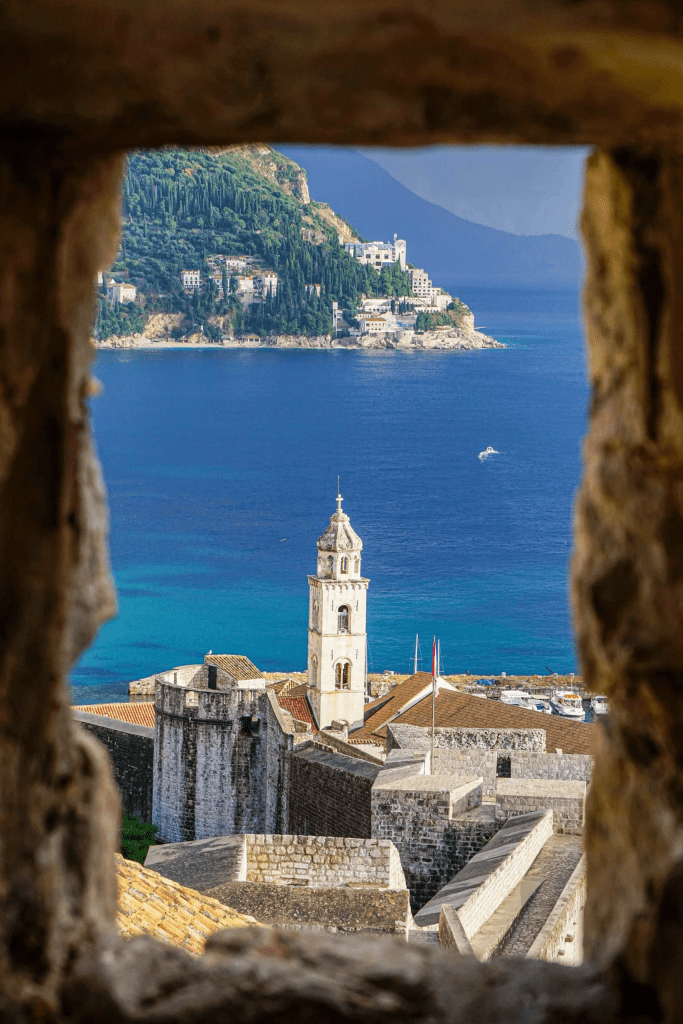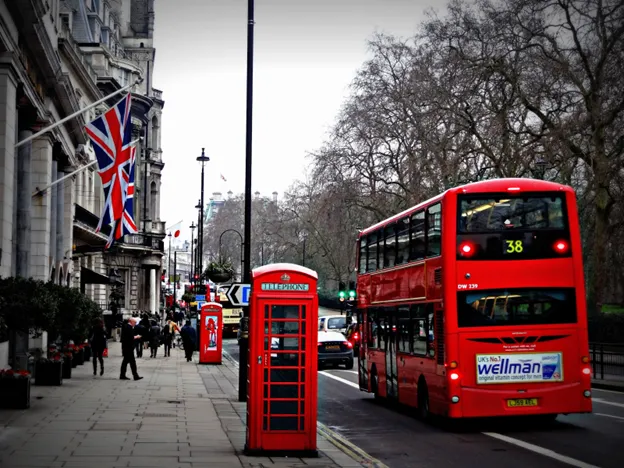Moving to Croatia from the UK
Are you looking to move from the UK to Croatia? Find out about everything you need to know for your move and your immigration options using our guide.
For more information and expert advice about how to move abroad, speak to our expert immigration lawyers today on 0333 305 9375.
Read our 1001 reviews
Overview of Croatian Immigrant Visas
As with most European countries, some of the main routes when moving to Croatia are based on work visas, family visas, business/investment visas as well as humanitarian and refugee protection routes.
As of the 1st of January 2021, any British citizen looking to travel and work within the European Union will be faced with limited privileges.
For example, British citizens can no longer travel to Croatia and easily obtain a residence permit.
This is because they are considered third-country nationals, which is how Croatia generally refers to anyone who does not hold EU/EEA nationality. With this in mind, it’s now relatively harder to acquire a long-term residence in Croatia.
Any British citizen who relocated to Croatia and applied for and/or already possess residence permits in Croatia will have their rights as well as privileges preserved according to the withdrawal agreement, even after the 1st of January 2021.
However, citizens should request a new withdrawal agreement biometric residence permit (Dozvola boravka) from the Croatian police. This vital document shows you have the rights as defined in the Withdrawal Agreement.
This document also shows your right to enter Croatia and exempts you from the European Travel Information and Authorization System and visa requirements.

Types of Croatian Visas
UK citizens are Croatia visa-exempt nationals, which means they are free to travel to the country using their UK passports without a visa. The passport must feature at least an unused page for entry stamping and be valid for at least 3 months from the day they intend to vacate Croatia.
It is worth noting that the type of visas offered by Croatia to its foreign residents depends on the duration as well as the reason behind their visits.
Short-term visas
Also referred to as tourist visas, Croatian short-stay visas are offered for medical treatment, tourism, business, or any other short-term travelling purposes.
UK nationals can travel to Croatia for up to 90 days in any 180-day period without the need for a short-term visa.
However, if you wish to stay longer than this period, work, study, or to travel for business, you will have to comply with the entry requirements as outlined by the Croatian government.
Note that the 90-day visa-free-limit for Croatia is separate from the 90-day visa-free-limit for the Schengen area. Border guards will use passport stamps to check that you are complying with the Croatian 90-day limit.
Long-term visas
Foreign residents who are looking to remain in the country for an extended period (more than 3 months) must first acquire two documents: a temporary residence permit and a long-stay visa.
Below are the most popular types of Croatian long-stay visas.
- Croatia work visa: This type of visa not only allows you to reside in Croatia, but to legally work there as well. However, you must first secure employment through a Croatian employer before submitting your application for the two important documents. Your potential employer should obtain them on your behalf in Croatia.
- Croatia student visa: This is issued for foreigners looking to join a learning institution in Croatia. Before you are issued a student visa for Croatia, you must first sign up for a recognized learning institution in Croatia.
- Croatia family visa: Popularly known as Croatia family reunification visa, this type of visa is intended for people looking to unite with their Croatian legal residents in the country.
Temporary Residence Permits
If the Croatian authorities grant you the permission to enter the country visa-free, but you would like to extend your stay for more than three months, you can make an application for your/work permit and temporary residence permit from within Croatia.
The application process can be carried out in your local police station. However, there is no guarantee that you’ll be successful, and you may be forced to vacate the country again, depending on your situation.
Below are the requirements for a temporary residence permit from Croatia:
- A valid passport or another travel document
- Birth certificate
- A colour passport photo
- Verification of enough financial means to support yourself
- Verification of private health insurance cover
- Criminal background check
- Proof of purpose for your stay (family, work, research, or education)
- Proof of consent from both parents for minor travellers
- Proof of visa fee payment
It is worth noting that temporary residence permits are valid for up to one year, but this can be extended by visiting your local police station. However, you should begin the renewal process at least 3 months or 90 days before your residence permit expires.
After residing in Croatia for five consecutive years through a residence permit, you can submit your application for a permanent residency permit.
Working in Croatia
You may wish to work in Croatia, and it’s worth noting that Croatian companies may often look abroad to help fill vacancies, especially in sectors such as tourism and construction.
However, before you can work in the country, you must qualify for a work permit, fulfilling the following two requirements:
- You must be a third-country national, or simply a non-EU citizen
- You must have been offered a valid work contract with a Croatian company
If you fulfil these requirements, you can then apply for one of the following work visas to allow you to stay and work in Croatia long-term:
- EU Blue Card for highly skilled work for at least 1 year
- Work and residence permit for local hires for up to 1 year
- Work and residence permit for local hires (key personnel) for up to 1 year
Each of these permits have their own requirements, but all may lead to the possibility of permanent residency if the correct criteria are met.
It is important to note that a work permit is tied to a particular work contract. Due to this, the term of your residence permit will be the same as that of your work contract, up to a one-year maximum.
In the event that your work contract is terminated, your residence and work permits will also be terminated within 15 days.
Buying Property
You do not need to be a resident in Croatia in order to purchase property or land.
For UK nationals with an interest in obtaining a home in a new country, you should seek professional advice from Croatian real estate agents to help you understand the state of the Croatian property market.
One main issue to contend with in the Croatian property sector is the problem of multiple ownership claims. It is important to note that a significant number of Serbians fled the country during the Croatian war, with some abandoning their legally owned properties, which have since been illegitimately resold by third parties.
It is advised that anyone looking to buy property in Croatia go through all the necessary steps to ensure that the process goes smoothly. This includes:
- Looking up public property records
- Checking the zoning requirements (British nationals can purchase properties in residential zones, but not agricultural zones)
- Having contracts checked by lawyers and notarised
- Seeking permission from the Croatian Ministry of Justice and registering the purchase with the local land registry
It is recommended to seek independent legal advice prior to committing to buying a property abroad.

Healthcare
Generally, UK citizens can access the Croatian health system in any of the following ways:
- Paying contributions to the Croatian Health Insurance Fund (HZZO)
- Using a European Insurance Health Card or UK Global Health Insurance Card for temporary stays when studying, or as a detached employee
- Registering a UK-issued S1 form with HZZO
It’s important to note that Croatian citizens and everyone else residing in Croatia for more than three months must have health insurance.
Healthcare in Croatia is not free, and besides periodic insurance contributions, you will also have to pay 20% towards the cost of any medical treatment. This is known as co-payment, and will range from around 10 to 2,000 Croatian kuna.
However, you won’t have to pay the 20% co-payment if you have separate supplementary health insurance. This costs around 60 to 120 kuna a month.
You must be able to show proof of healthcare cover before you can register as a resident and when you apply for a visa.
Once you’ve applied for your permit, you will need to take a proof of your residency application to your local HZZO office within 8 days to register to pay your health insurance contributions.
Once registered, you will receive a letter confirming your insurance, and an insurance card. As the card may take up to 3 months to arrive, your letter can be used as proof that you are entitled to healthcare in the meantime.
Taxation
The United Kingdom has a double taxation agreement with Croatia to ensure you don’t pay tax on the same income in both countries.
You may need to pay social security contributions (SSC) in Croatia, which are similar to national insurance contributions. If you plan to move to, and work in, Croatia, you and your employer may have to pay SSC.
You should seek help from the relevant tax authority about double taxation relief and on how to pay tax in Croatia.
Becoming a Long-Term Resident
Becoming a long-term (or indefinite) resident of Croatia means having full access to the rights to work, study, access social welfare, tax reliefs, and the free market of goods and services.
If granted long-term resident status, you may live and work in Croatia permanently.
UK nationals seeking to become a long-term resident of Croatia must have had legal residence in Croatia for 5 continuous years, and no absences more than 10 months total or on a single occasion more than 6 months.
This will usually mean 5 continuous years of temporary residence on a work permit, such as an EU Blue Card.
Note that in order to be granted permanent residency, you must fulfil the following requirements:
- Own a valid travel document
- Own funds to support yourself
- Own health insurance
- Have the knowledge of the Croatian language and Latin script
- Not be considered a threat for public policy, national security or public health
The application for long-term residence may be made at a local police station, and will be overseen by the Ministry of the Interior.
How can IAS help?
Moving to and living in Croatia can prove a challenging and complicated experience. However, you don’t have to go it alone.
IAS can help. We are a team of expert international immigration advisers with experience in the UK, Europe and the rest of the world. Whatever your destination and whatever your needs are, we can help.
Whether you need assistance with applying for the right Croatian visa, need advice on how to navigate the complex legal processes there, or are looking to move elsewhere in central and southeastern Europe and beyond, we can help.
If you are considering moving to Croatia, don’t hesitate to book an advice session with our excellent immigration lawyers. We have offices located across the UK, including in London, Manchester, or Birmingham. You can also use the office finder to find the closest branch to you. Call us now on 0333 305 9375.
Table of Contents
Table of Contents will appear here.Table of Contents
Table of Contents will appear here.Legal Disclaimer
The information provided is for general informational purposes only and does not constitute legal advice. While we make every effort to ensure accuracy, the law may change, and the information may not reflect the most current legal developments. No warranty is given regarding the accuracy or completeness of the information, and we do not accept liability in such cases. We recommend consulting with a qualified lawyer at Immigration Advice Service before making any decisions based on the content provided.
Services we Provide
Frequently Asked Questions
Croatia offers a range of attractive benefits that may make it an appealing destination for British expats. For example, some of the benefits of moving to Croatia are as follows:
- Stunning scenery and coastal towns on the Adriatic
- Warm and temperate climate
- Low crime rates
- English is widely spoken alongside the native Croatian language
- Relaxed pace of life
In addition, Croatia is ideally situated to allow for easy travel and access to Italy, Austria, Germany and the rest of the Balkans.
Croatia can be more difficult than most other European countries to move to due to the complex nature of application processes. In addition, the process of finding work in Croatia before applying for a visa may be difficult and highly subject to fluctuations in the local economy and job markets.
Moving to Croatia from the UK may seem daunting, but our professional immigration lawyers are on hand to help with each step of the process. For more information about what we can do for you, call us on 0333 305 9375.
















